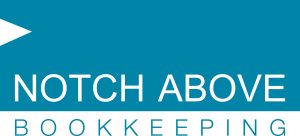Plan To Make Money In The New Financial Year
If there’s one thing you should start doing for this new financial year which is just a couple of months away, it’s draft a budget and stick to it. I can guarantee budgeting is one of the best resolutions you’ll make for your business, especially if you’ve never done a proper budget.
A budget shouldn’t be written on the back of a paper napkin or lost somewhere in your pile of notes. It should be a document or software which is easily accessible, updated regularly and reviewed monthly.
Think of a budget as your plan on how to make money this coming financial year. You can’t possibly know how much money you’ve made without knowing how much you’ve spent for the business. And you can’t slash costs if you don’t know how much you’ve allocated for it.
Your business budget is the thermometer that tells you when business is cooling off or it’s on fire and doing well.
How Do I Draft A Budget?
Drafting a budget may require extra work, but it pays off at the end of the financial year because budgeting helps you
- set targets
- fix issues before they grow worse and
- monitor business costs.
By setting a contingency plan in your budget, you will also be prepared when business becomes unpredictable or takes a turn for the worse.
If this is your first time doing a proper budget, you will need all your business data and historical trends. The easiest place to start is to look at your balance sheet, cash flow statement and profit and loss statement.
- Profit and Loss Statement
Whether you are profitable or running at a loss, this report will outline your expenses such as leases, payroll and utilities as well as your income so you will know what to allocate in your budget. If you are losing money, a budget will help you implement strategies to break even, reduce your losses or make a profit.
- Balance Sheet
This lists your assets, liabilities and equity in the business. Understand the value of your assets such as intellectual properties, machineries and brand name. Figure out your biggest liabilities and see how you can reduce them or pay them off quicker.
- Cash Flow Statement
Find out how much cash you have in hand and how much goes into operations, investment and financing.
Try to go back a few years and pick up any trends such as rising costs or poor cash flow during slow seasons. The trends will tell you how to allocate your money appropriately over a year. Studying your business and market trends will help you set realistic targets for your budget.
Once you have all the numbers, always double check it. Having the wrong figures will give you wrong estimates, which is disastrous for business. Get an expert such as a bookkeeper or accountant to go over the data so you can have a peace of mind.
Now, it’s time to set realistic targets based on all the evidence you have. Again, you can enlist professional help if this is your first time planning a budget. I always believe that good help is worth every dollar spent.
Finally, the last element of your budget is a contingency plan. You should have several in place based on a few scenarios. Think of what to do if the economy shrinks or stagnates, which affects consumer spending and your bottom line. Or what if certain supply items become expensive due to a falling Australian dollar? How about a scenario where business picks up and you need more staff to cope?
Sticking to Your Budget
The secret to sticking to your budget is having regular reviews. You’re more likely to manage your budget well if you constantly keep track of what’s going on in your business. Reviews should not take too long once you implement a process, allocate proper resources and do it consistently.
Keep in mind that your plans may change as the year progresses, especially if you receive good or bad news out of the blue. You must be flexible enough to change your budget based on the latest projections.
If you’re feeling lost, contact a qualified professional such as a bookkeeper. They can guide you through the whole process and recommend strategies to assist your business. They should also sit down with you regularly for budget reviews to help achieve your goals.
It’s a brand new year, so start working on your business resolutions soon. Book a “Next Actions Discussion” with me if you would like to discuss the way forward or call our office today on (07) 3355 6427
Specialising in Xero bookkeeping, Notch Above is a Brisbane bookkeeper and BAS Agent located in Alderley that offers Xero setup, as well as training and ongoing support. Notch Above can take care of all the bookkeeping tasks you would rather not do, like bank reconciliations, supplier payments, payroll services, debtor control and BAS returns.
Like us now on Facebook
Follow us now on Twitter
Connect with me on LinkedIn
Visit our Website

